General
Excitement as 36 Mastercard Foundation Scholars graduate from Makerere University
Published
1 year agoon
By
Mak Editor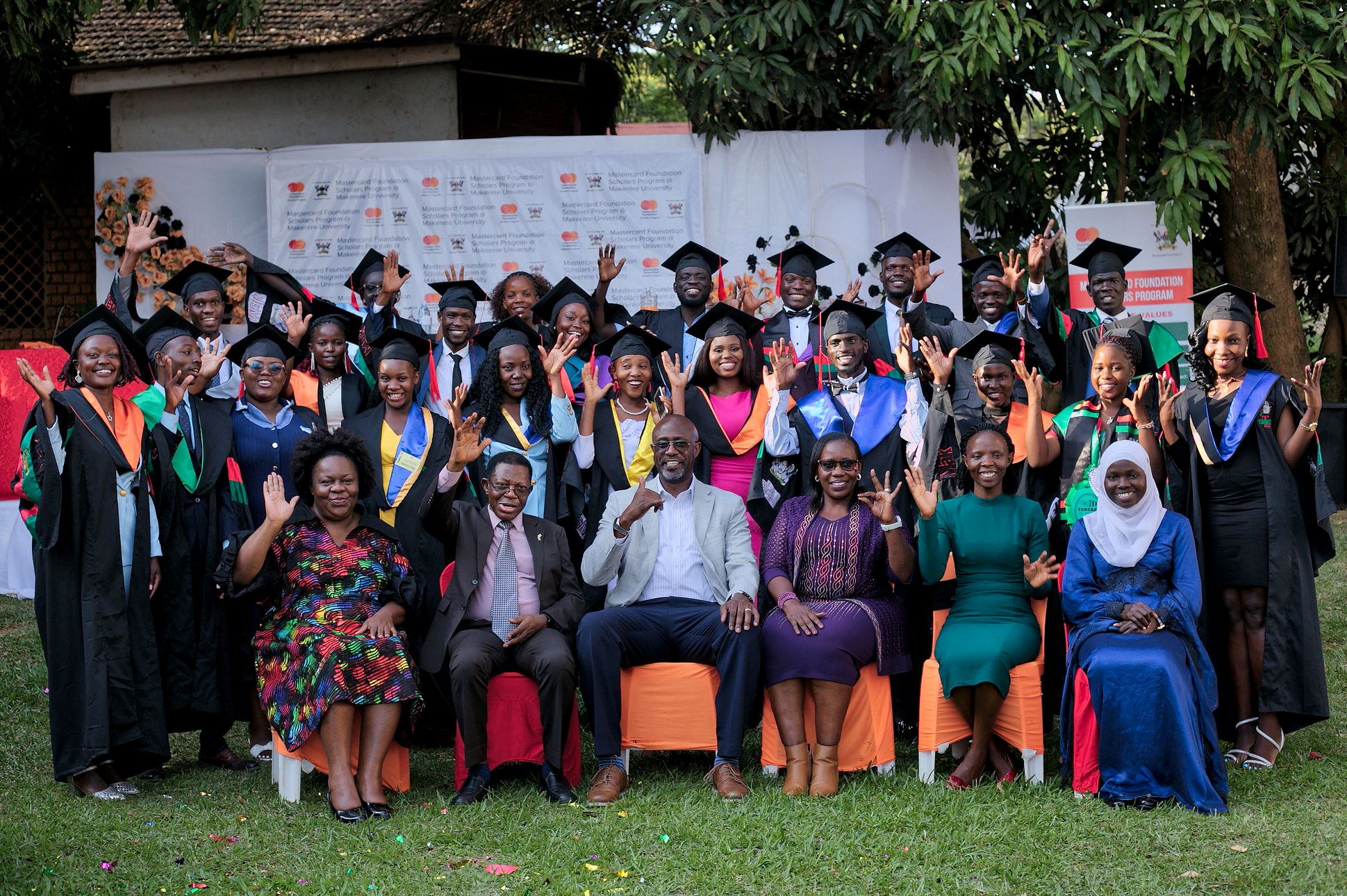
By the Program Communication Team
On Friday, January 17, 2025, the Mastercard Foundation Scholars celebrated a significant milestone as they graduated from Makerere University. The day was filled with enthusiasm and pride as 36 dedicated students completed their Mastercard Foundation Scholars Program journey. This achievement reflects their hard work and commitment and paves the way for new opportunities in their future endeavours.
At the event, Mr. Adrian Bukenya, the Country Director of Mastercard Foundation Uganda and the chief guest, encouraged the new graduates to create jobs for their peers rather than solely seeking employment for themselves.
“As fresh graduates, your first step shouldn’t be simply searching for jobs. Instead, focus on creating job opportunities for your peers. The university degree you have earned puts you in a unique position. The knowledge and skills you’ve gained and the experiences and connections you have made empower you to thrive in this country,” Mr. Bukenya remarked.
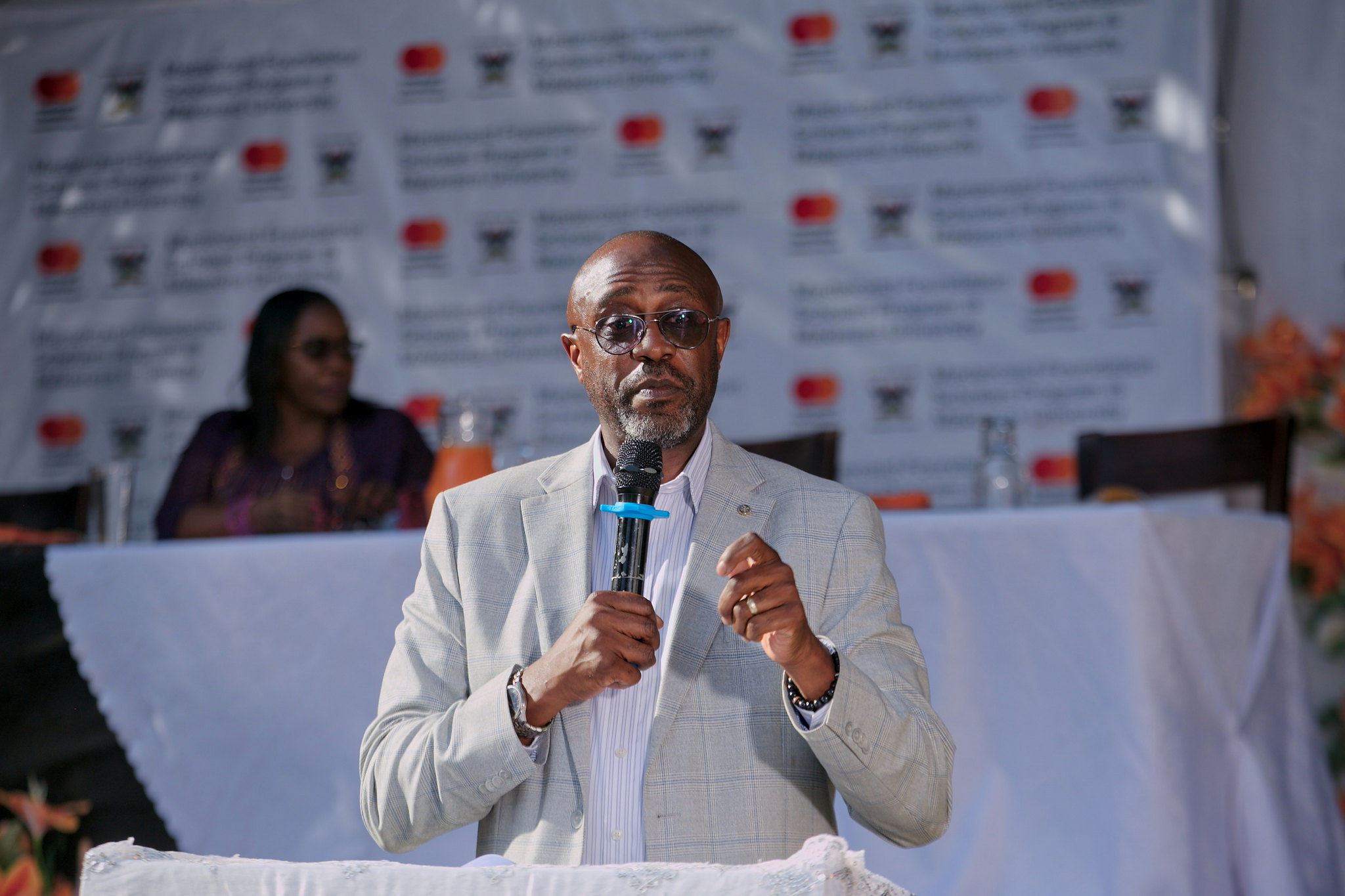
Mr. Bukenya further expressed his gratitude to Makerere University‘s leadership and acknowledged the profound relationship the University shares with the Foundation. He emphasized that the partnership with Makerere University was essential to the Foundation.
“The Mastercard Foundation values its partnership with Makerere University, as the university continues to produce exceptional talent essential for Uganda’s development. The country would struggle to achieve its national aspirations without this contribution,” noted Mr. Bukenya.
Mr. Bukenya emphasized the core mission of the Mastercard Foundation, which is to alleviate poverty in areas where it is most prevalent and to enhance access to education. He pointed out that the Scholars Program is a fundamental component of this initiative. He noted that earning a degree is a valuable tool and a testament to an individual’s ability to learn, perform tasks, and achieve results within structured and organized frameworks.
He further stressed the Foundation’s commitment to empowering young people to lead and transform Africa.
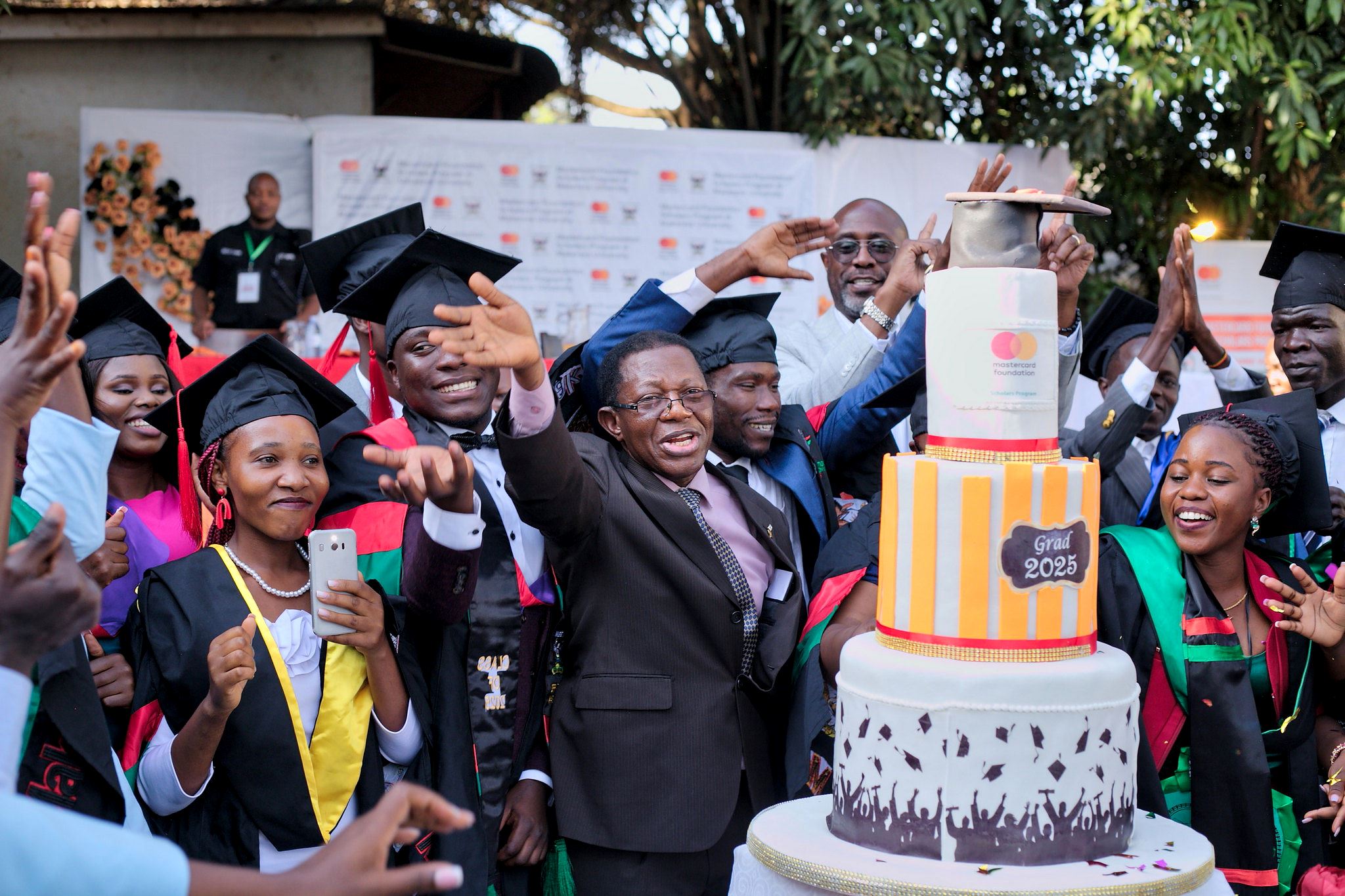
“The Mastercard Foundation has made a strategic commitment to focus uniquely on Africa, home to the world’s youngest population. Through its ‘Young Africa Works’ strategy, the Foundation supports entrepreneurship and enterprise development among young people, empowering them to shape the future of their communities and the continent.” emphasized Mr. Bukenya.
Speaking on behalf of the University Management, Professor Buyinza Mukadasi, the Acting Deputy Vice-Chancellor of Academic Affairs and Chairperson of the Steering Committee for the Mastercard Foundation Scholars Program at Makerere University, congratulated the program for achieving an impressive 94% graduation completion rate.
“The Mastercard Foundation Scholars Program at Makerere University has graduated 964 scholars—78% female and 22% male—representing 94% of the 1,032 recruits from Phase One. We expect to achieve 100% graduation for all Phase One scholars at the 76th Graduation Ceremony next year.” Prof. Buyinza remarked.
Prof. Buyinza expressed gratitude to the Mastercard Foundation for its ongoing support of the university, which has significantly added value, particularly in educating young people from vulnerable communities.
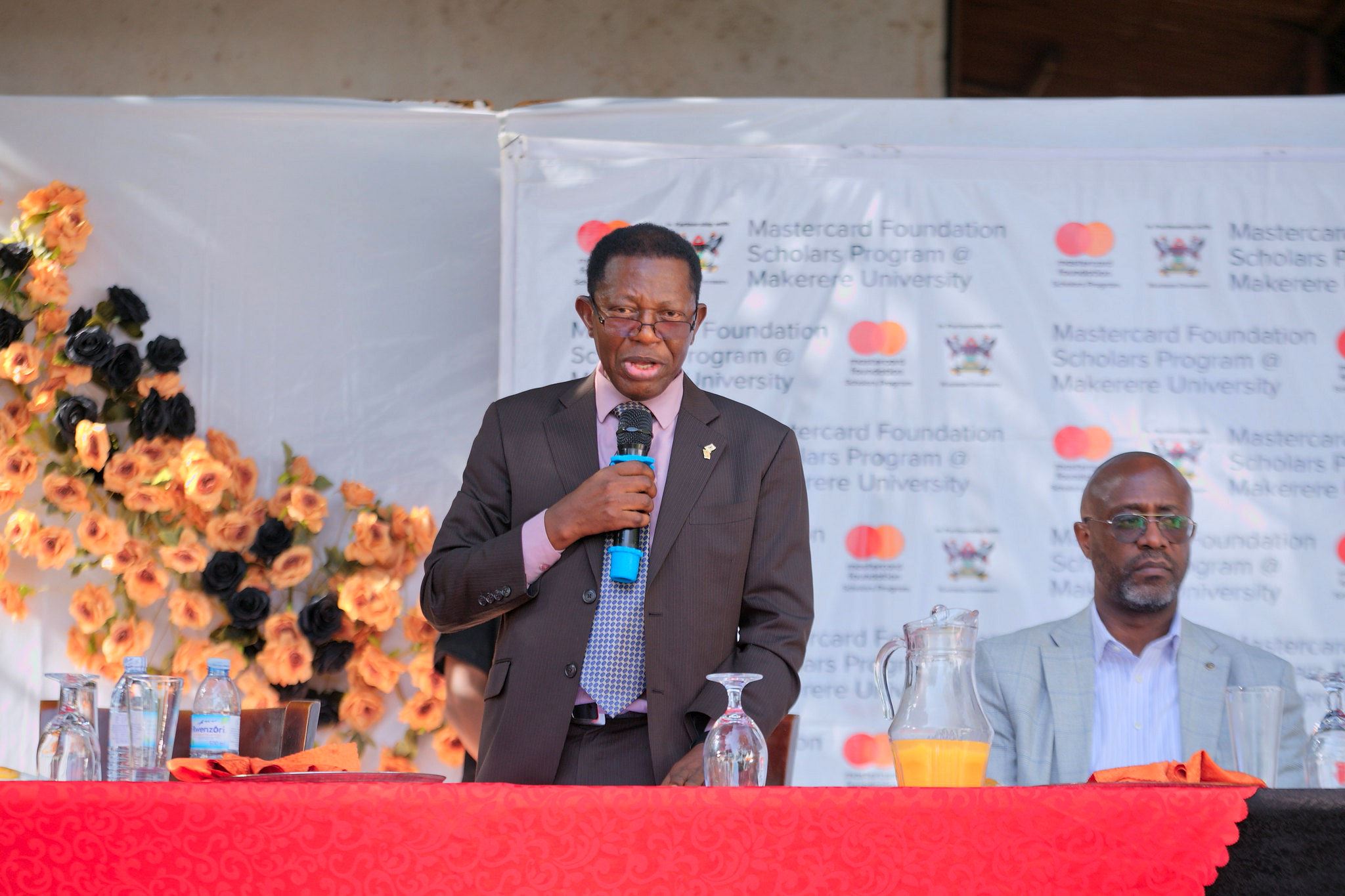
“We sincerely thank the Mastercard Foundation for partnering with Makerere University to educate and empower the next generation of leaders and change-makers. The statistics regarding the number of young people supported and the impact that the program’s alumni have made in society are a testament to the energy and potential of young individuals when provided with the right education, guidance, and support.” Prof. Buyinza pointed out.
Program Director Prof. Justine Namaalwa emphasized her team’s commitment to ensuring the successful operation of the Scholars Program at Makerere University for years to come.
“Makerere University and the nation greatly appreciate the Mastercard Foundation for its generosity and foresight, which continue to transform human capital in Africa. There is no doubt that your vision for Africa is being realized. We are committed to this mission, even as we enter phase two of the program,” noted Prof. Namaalwa.
Prof. Namaalwa expressed gratitude to the University Management, led by Vice Chancellor Prof. Nawangwe, for their support and commitment to the Scholars Program. She pointed out that the strong backing from the university management has enabled the Program to meet its goals and succeed at the University.
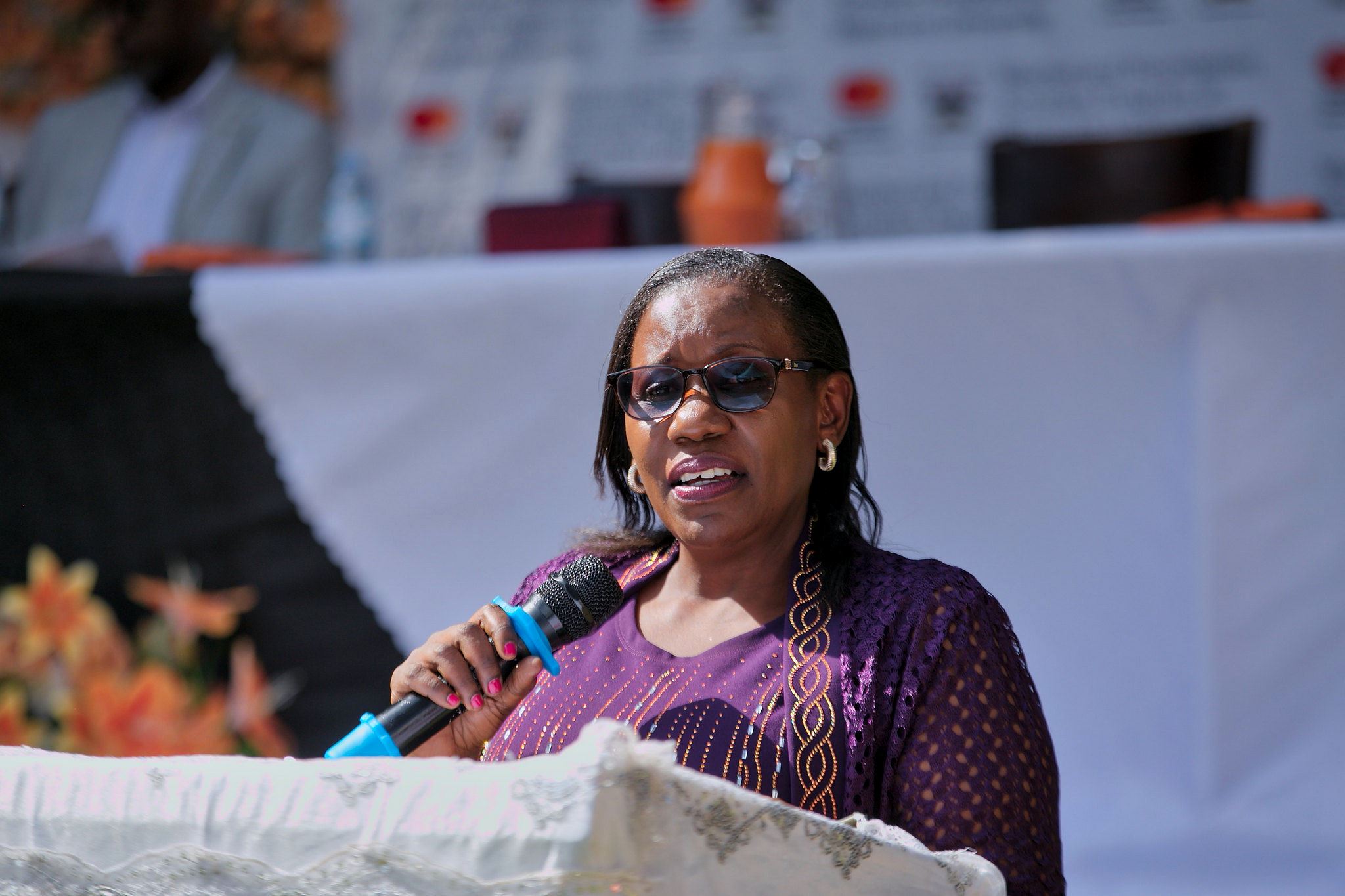
“I sincerely thank the Vice Chancellor, Prof. Barnabas Nawangwe, and the entire University Management and the governing structures of the Program for their effective leadership, which continues to yield positive results from our strong partnership with the Mastercard Foundation.” Prof. Namaalwa pointed out.
Prof. Namaalwa equally appreciated the graduates for helping achieve the Mastercard Foundation’s goals, which aims to educate and empower the next generation of African leaders. She noted that Makerere University has begun implementing the second phase of the Mastercard Foundation Scholars Program, which will span the next ten years. In this phase, the Mastercard Foundation has committed to providing scholarships to 1,000 academically talented youth facing economic hardships, enabling them to access quality education at Makerere University.
She asserted that the Mastercard Foundation prioritizes three key transition pathways: formal employment, entrepreneurship, and further education. She urged the graduates to remain active on all the program’s social media platforms, especially the Alumni WhatsApp platform, as it will be a vital channel for sharing ongoing opportunities from the Mastercard Foundation and other partners.
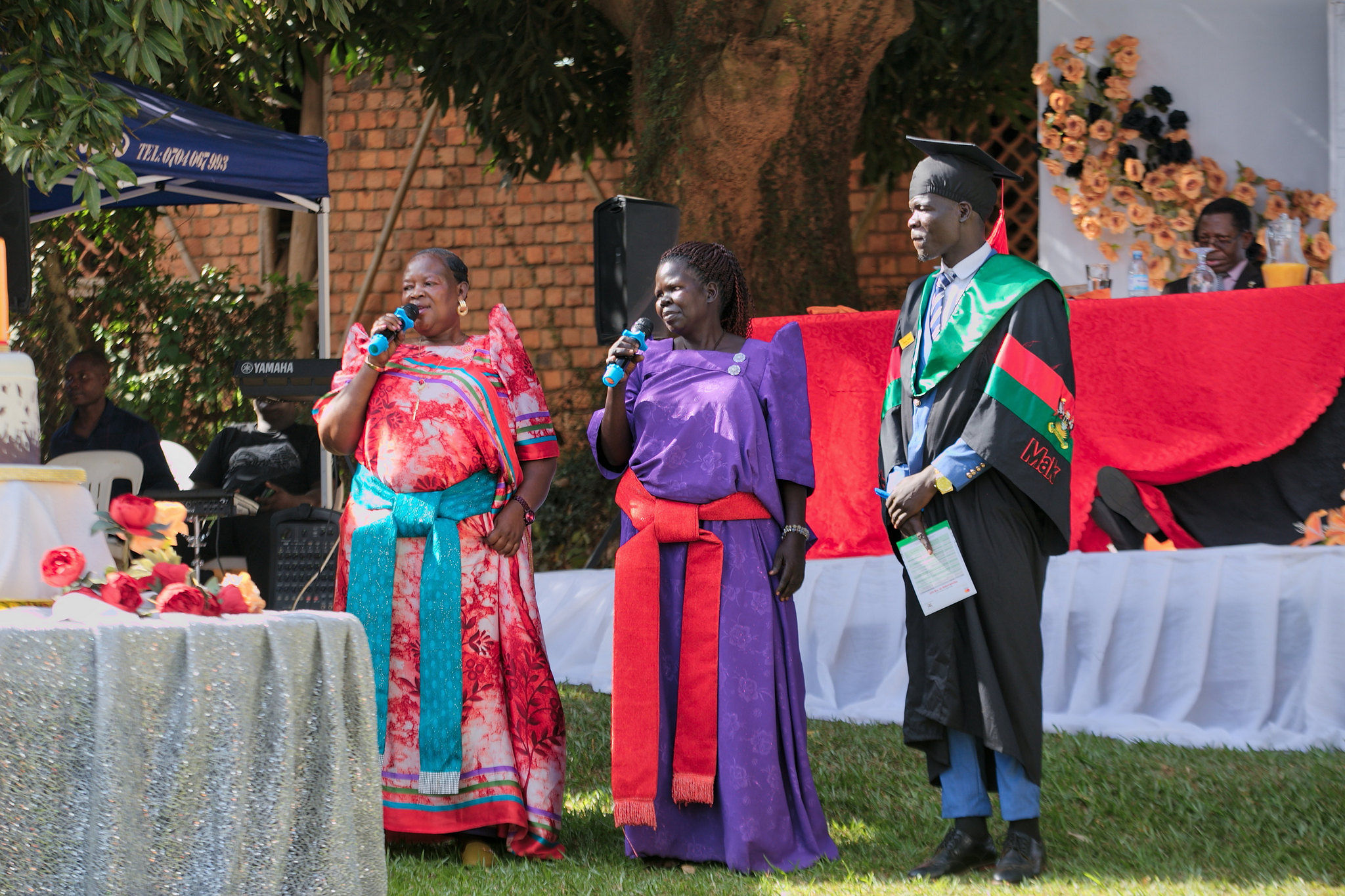
Ms Aida Aol, the mother of graduate Mr Okello Godfrey, expressed gratitude on behalf of parents and guardians. She thanked the Mastercard Foundation and Makerere University for providing her son and other vulnerable young people with the opportunity to study at one of the best universities in Uganda. Ms. Aol highlighted that she had lost hope for her son’s university education due to financial constraints.
“I cannot thank Mastercard Foundation and Makerere University enough for providing our children with the opportunity to attend one of the best universities in the country. Many of us parents could not afford to send our children here because we did not have the resources to pay for their education,” Ms. Aol remarked.
Ms. Aol stated that she lost her husband when her son was only four years old, and she had since committed herself to ensuring he completed both elementary and high school. However, she reached a critical point where she could no longer afford to support his university education.
Graduates speak out
Awien Rose Madot, a Journalism and Communication graduate, expressed her gratitude to the Mastercard Foundation Scholars Program for transforming her life. The program enabled her to achieve her academic goals and instilled in her a strong sense of responsibility to use her degree to create positive change in the world.
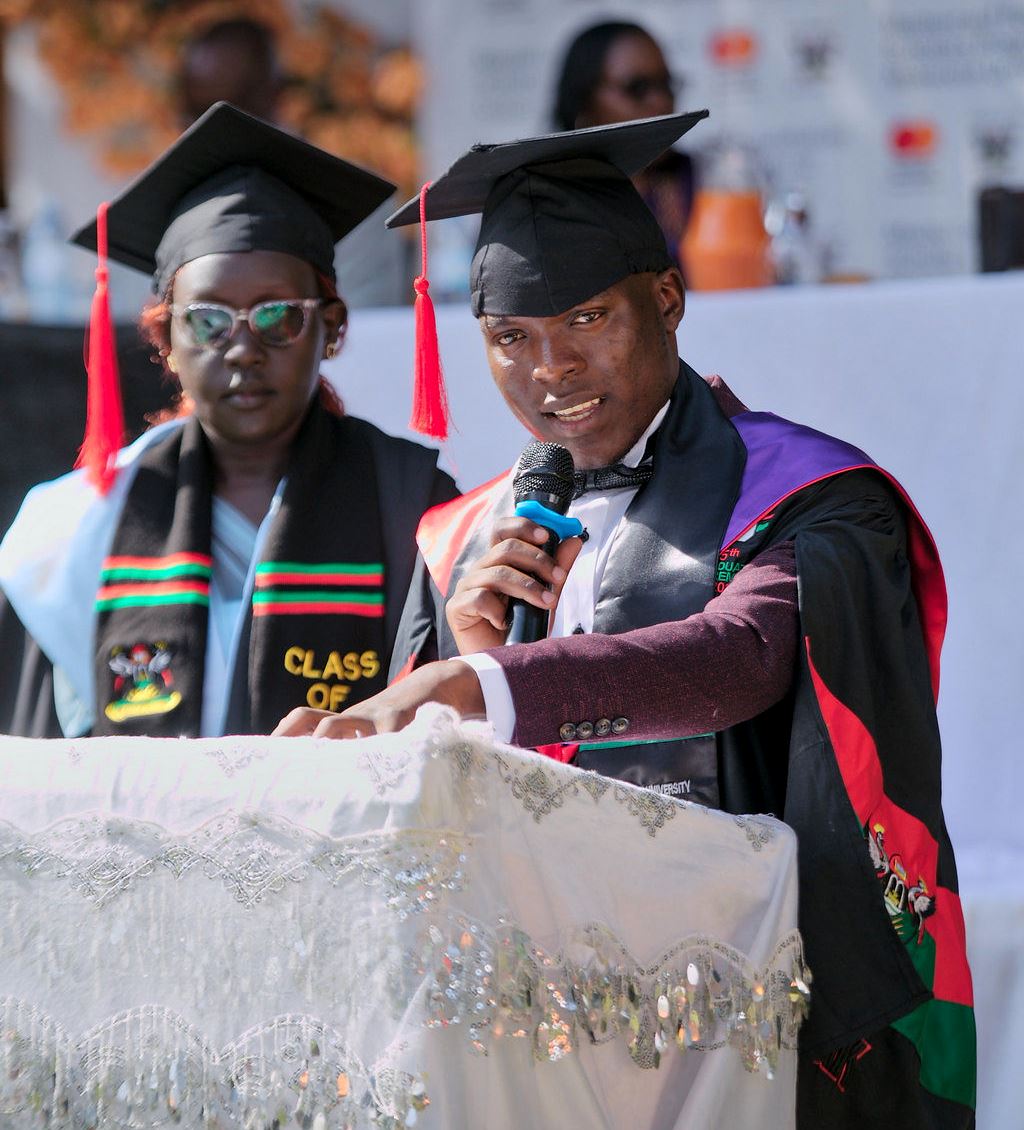
“Accessing higher education can often feel like a distant dream for refugees like me. However, the Mastercard Foundation Scholars Program has served as a powerful beacon of hope. It clearly demonstrates that education is a vital tool for empowerment and transformation, even in the face of adversity. The Program has provided us with financial resources, as well as invaluable mentorship, guidance, and a strong support network for all the scholars involved,” said Madot.
Dr. Raphael Kasuku, a dental surgery graduate, pledged to continue the spirit of giving back to his community by offering dental services. He urged his fellow graduates to utilize the knowledge and skills they acquired through their education to uplift their communities.
“To my fellow graduates, this moment marks not just the end of a chapter but the beginning of an exciting new journey. The world ahead is vast and brimming with opportunities that we are ready to seize. It won’t always be easy, but we must remember that the resilience, determination, and passion that brought us here will continue to propel us forward as we strive to serve our communities.” Dr. Kasuku remarked.
The colourful event was a vibrant gathering held in the gardens of the University Guest House, bringing together a diverse community of program stakeholders. Attendees included members of the University management and the Steering and Selection Committees. Mentors of the Scholars Program, parents and guardians, and alumni also contributed to the inspiring atmosphere. Additionally, representatives from the Mastercard Foundation and program partners joined the celebration, along with numerous well-wishers who continue to support the Program’s mission.
You may like
-


Over 9,200 to graduate at Makerere University’s 76th Graduation
-


Meet Najjuka Whitney, The Girl Who Missed Law and Found Her Voice
-


Makerere University School of Public Health Graduates First Cohort of Cost-Effectiveness Analysis Short Course
-
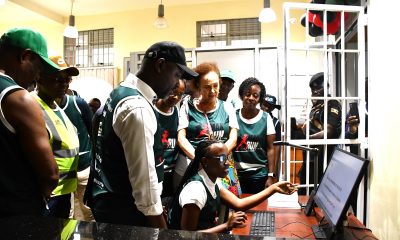

Students empowered to thrive through the Semester
-


Climate variability found to shape malaria trends in Yumbe District
-


Mak hosts First African Symposium on Natural Capital Accounting and Climate-Sensitive Macroeconomic Modelling
General
Over 9,200 to graduate at Makerere University’s 76th Graduation
Published
4 hours agoon
February 24, 2026
Pomp and colour defined the opening day of the Makerere University’s 76th Graduation Ceremony as thousands gathered to celebrate academic excellence and new beginnings.
The historic ceremony has brought together scholars, families, friends and industry partners in a vibrant celebration of achievement and possibility. Throughout the four-day event, the University will confer degrees and award diplomas to 9,295 graduands in recognition of their dedication and hard work.
Among the graduates, 213 will receive Doctor of Philosophy (PhD) degrees, 2,503 will graduate with Master’s degrees, and 6,343 will earn Bachelor’s degrees. In addition, 206 students will graduate with postgraduate diplomas, while 30 will be awarded undergraduate diplomas.
Of the total number of graduands, 4,262 are female and 5,033 are male. According to Vice Chancellor, this marks the first time in 15 years that male graduands have outnumbered their female counterparts.
The best overall graduand in the Sciences, Esther Ziribaggwa, graduated on the opening day with the Bachelor of Agricultural and Rural Innovation and an impressive Cumulative Grade Point Average (CGPA) of 4.77.

The ceremony marks a proud moment for Makerere University as it continues to nurture top-tier professionals across diverse fields.
While presiding over the graduation, the State Minister for Primary Education, Hon. Dr. Joyce Moriku Kaducu, on behalf of the First Lady and Minister of Education and Sports, Hon. Janet Kataaha Museveni, pointed out that Makerere University is a model institution, where leaders are nurtured, scholars are sharpened, and where dreams have been given direction.
In her address, Hon. Museveni, highlighted Government’s deliberate investment in research, innovation, and infrastructure to strengthen higher education in Uganda.
“The establishment of the Makerere University Research and Innovation Fund (RIF), supports high-impact research and innovation that directly contributes to national priorities and development. Through this initiative, thousands of researchers and innovators have pursued practical, scalable solutions that are transforming communities and key sectors across Uganda,” Mrs Museveni, said.
The Minister also noted that Parliament’s approved a USD 162 million concessional loan to upgrade science, technology, and innovation infrastructure at Makerere University. The funding will facilitate the construction of modern laboratories, smart classrooms, and state-of-the-art facilities for Engineering and Health Sciences, investments expected to position the University firmly within the Fourth Industrial Revolution.
“Government has embarked on the construction of a National Stadium at Makerere University and other institutions of higher learning across the country. This will promote physical education, strengthen talent identification, and boost investment in the sports sector,”

Turning to the graduands, the Minister encouraged them to see themselves not merely as job seekers, but as job creators and solution-makers.
Uganda and Africa need innovators who will modernize agriculture; engineers who will build quality infrastructure; healthcare professionals who will strengthen health systems; and educators who will inspire the next generation,” the Honourable Minister said.
She reminded graduates that they are entering a rapidly changing world shaped by Artificial Intelligence, climate change, and shifting global markets. To thrive, she advised them to remain adaptable, creative, and committed to lifelong learning.
She also encouraged graduates interested in entrepreneurship to tap into the Government’s Parish Development Model, which provides community-based financing and production support.
Quoting Proverbs 3:5–6, the Minister urged the graduates to trust in God as they embark on their next chapter.
She extended special appreciation to the Mastercard Foundation for its 13-year partnership with Makerere University in expanding access to education and empowering young people in Uganda and beyond.
In his speech, the Chancellor of Makerere University, Dr Crispus Kiyonga, urged graduands to harness research, innovation and technology to drive Uganda’s transformation.

“This is a milestone in your lives. You have invested time, discipline and hard work to attain these qualifications. It is important that you derive value from this achievement, not only for yourselves, but for your families and for society.” Dr Kiyonga, said.
Dr. Kiyonga expressed gratitude to the Government of Uganda for its continued financial support to the University, particularly the funding allocated under MakRIF, which he described as critical in strengthening the institution’s research capacity.
“Research plays a very vital role in the development of any community. Makerere as the oldest University in the country is doing a significant amount of research, However, more work is required to mobilize additional resources to further strengthen research at the University.” Dr Kiyonga, noted.
Acknowledging the challenges of a competitive job market, Dr. Kiyonga encouraged graduates to think beyond traditional employment pathways.
“It is true that the job market may not absorb all of you immediately. But the knowledge you have acquired is empowering. You can create work for yourselves, individually or in teams.” Dr Kiyonga, said.
He advised the graduands to embrace discipline, integrity and adaptability in the workplace, and to take advantage of technology and digital platforms to innovate and respond to societal challenges.
“Every development challenge presents an opportunity. Believe that you can apply your knowledge to create solutions with impact.” He said.
Addressing the congregation, the Vice Chancellor, Prof Barnabas Nawangwe, congratulated the graduands, particularly staff and societal leaders on their respective achievements.

“I congratulate all our graduands upon reaching this milestone. In a special way I congratulate the members of staff, Ministers, and Members of Parliament that are graduating today as well as children and spouses of members of staff,” Prof Nawangwe, said.
In his speech, Prof Nawangwe, recognized outstanding PhD students, particularly members of staff. who completed their PhDs in record time without even taking leave from their duties.
He called upon graduates not to despise humble beginnings but rather reflect on the immense opportunities around them and rise to the occasion as entrepreneurs.
“You are all graduating with disciplines that are needed by society. We have equipped you with the knowledge and skills that will make you employable or create your own businesses and employ others. Do not despair if you cannot find employment. Instead, reflect on the immense opportunities around you and rise to the occasion as an entrepreneur,” Prof Nawangwe, said.
Prof Nawangwe called upon the graduands of PhDs to use their degrees to transform the African continent.
“As you leave the gates of Makerere I urge you to put to good use the knowledge you have received from one of the best universities in the World to improve yourselves, your families, your communities, your Country and humanity. Let people see you and know that you are a Makerere alumnus because of the way you carry yourself in society with dignity and integrity. Put your trust in God and honour your parents and opportunities will be opened for you,” Prof Nawangwe, said.
Delivering a key note address, Prof. Nicholas Ozor, the Executive Director of the African Technology Policy Studies Network Nairobi, Kenya ((ATPS). Reminded the graduates that a degree is not a finish line but the beginning of accountability. “The world is a complex, fast changing and deeply unequal. Degrees make you responsible for others not better than them,” Prof Ozor, said.

The 76th Graduation Ceremony of Makerere University will be held from Tuesday 24th to Friday 27th February, 2026. A total of 213 PhDs (87 female, 126 male), 2,503 Masters (1,087 female, 1,416 male), 206 Postgraduate Diplomas (80 female, 126 male), 6,343 Undergraduate Degrees (2,999 female, 3,344 male), and 30 Undergraduate Diplomas (9 female, 21 male) will be graduating from all the Colleges.
Ms. Sarah Aloyo and Ms. Nakato Dorothy both students of the Bachelor of Procurement and Supply Chain Management emerged as the best in the Humanities and Best Overall students with a CGPA of 4.93. Mr. Ssewalu Abdul, a Bachelor of Leisure and Hospitality Management student emerged second best in the Humanities with a CGPA 4.90. Ms. Esther Ziribaggwa emerged as the best student in the Sciences with a CGPA of 4.77 in the Bachelor of Agricultural and Rural Innovation, while Mr. Simon Mungudit emerged second best in the Sciences with a CGPA of 4.76 in the Bachelor of Science in Petroleum Geoscience and Production.
Commencement Speakers
- Day 1 – Prof. Nicholas Ozor, the Executive Director of the African Technology Policy Studies Network, Nairobi, Kenya
- Day 2 – Prof. Dr. Maggie Kigozi, Chairperson Makerere University Endowment Fund Board
- Day 3 – Dr. Patricia Adongo Ojangole, Managing Director, Uganda Development Bank Limited
- Day 4 – Ms. Reeta Roy, Former President & Chief Executive Officer, Mastercard Foundation
The 76th Graduation Ceremony will be held at the Freedom Square following the schedule below:
Tuesday, 24th February, 2026
College of Agricultural and Environmental Sciences (CAES)
College of Computing and Information Sciences (CoCIS)
College of Education and External Studies (CEES)
School of Law (SoL)
Livestream Link for Day 1: https://youtube.com/live/wVGPA0FJ9pU
Wednesday, 25th February, 2026
College of Health Sciences (CHS)
College of Natural Sciences (CoNAS)
College of Veterinary Medicine, Animal Resources and Bio-security (CoVAB)
School of Public Health (SPH)
Thursday, 26th February, 2026
Makerere University Business School (MUBS)
College of Business and Management Sciences (CoBAMS)
Friday, 27th February, 2026
College of Engineering, Design, Art and Technology (CEDAT)
College of Humanities and Social Sciences (CHUSS)
Institute of Gender and Development Studies (IGDS)
Makerere Institute of Social Research (MISR)
General
Mak Selected to Host Alliance for African Partnership Africa Office
Published
1 day agoon
February 23, 2026
Makerere University has been selected to host the Africa Office of the Alliance for African Partnership (AAP). The significant milestone that underscores Makerere’s role in fostering research, innovation, and global collaborations across the continent was announced at a meeting of the University’s Central Management with an AAP delegation on 23rd February 2026.
Makerere’s selection was based on the University’s robust commitment, alignment with the AAP’s Strategic Plan, and proven ability to manage consortium activities. The AAP, which was initiated by Michigan State University (MSU) in collaboration with Ten African Universities and agricultural policy research networks in 2016, targets critical challenges in education, youth empowerment, health and nutrition, agri-food systems, science and technology, water, energy, environment, and culture and society.
Addressing the delegation consisting of AAP Co-Directors from MSU, Dr. Jose Jackson-Malete and Dr. Amy Jamison, accompanied by newly-appointed Director of the AAP Africa Office, Dr. Racheal Ddungu Mugabi and Ms. Clare Cheromoi, the Vice Chancellor, Prof. Barnabas Nawangwe who appreciated the choice of Makerere to host the Africa Office said:
“One of the greatest challenges facing African universities is PhD training, particularly supervisory capacity. Through partnerships such as the Alliance for African Partnership we can leverage international expertise to strengthen supervision—whether through training supervisors or through joint supervision arrangements.”
Prof. Nawangwe equally applauded joint initiatives such as the Grant Writing and Publication project, which gave rise to the establishment of a Writing Centre that he said can be used to build capacity in AAP member universities with Makerere as the hub. Officially launched on 21st March 2023, the project is living up to its expectation of becoming a springboard for strong postdoctoral collaborative research for both institutions and other US universities.
Dr. Titus Awokuse, Vice Provost and Dean for International Studies and Programs at Michigan State University (MSU) who attended virtually, reiterated that Makerere’s selection reflects its long-standing commitment to advancing African higher education, research excellence, and meaningful global collaboration.
Reflecting on the origins of the Alliance for African Partnerships (AAP), Dr. Awokuse explained that nearly a decade ago, MSU initiated a transformative conversation in Atlanta centered on the question: How should we partner differently? From this dialogue emerged AAP—an Africa-centered consortium that now brings together 12 institutions across Africa and the United States.

He emphasized that AAP is grounded in equity, mutual benefit, shared leadership, and deep respect for African priorities and expertise. Since its founding, MSU has served as convener and key supporter, working with member institutions to strengthen research collaboration, promote faculty and student engagement, and address shared development priorities.
Dr. Awokuse underscored that AAP’s success is the result of collective vision and commitment, not the efforts of a single institution. He paid tribute to Lilongwe University of Agriculture and Natural Resources for hosting the Africa Office in its early years and acknowledged the foundational leadership of the inaugural Africa Office Director.
He described the launch of the Africa Office at Makerere University as a significant milestone that reinforces Africa-led leadership, strengthens regional collaboration, and enhances responsiveness to emerging opportunities. MSU, he affirmed, remains fully committed to AAP and to working closely with Makerere and all consortium partners to expand collaborative research, nurture the next generation of scholars, and advance Africa-led solutions to global challenges.
The newly-appointed AAP Africa Office Director, Dr. Racheal Ddungu Mugabi is a member of faculty in the Department of Development Studies, Institute of Gender and Development Studies. Her work on intersectional inequalities in Uganda and other Global South regions uniquely positions her to drive collaborative research and partnerships at the Africa Office.
Initially founded by ten African Universities and MSU, AAP now comprises eleven African members including; the African Network of Agricultural Policy Institutes (ANAPRI)-Zambia, Egerton University-Kenya, Lilongwe University of Agriculture and Natural Resources (LUANAR)-Malawi, Makerere University-Uganda, United States International University-Africa-Kenya, Universite Cheikh Anta Diop-Senegal, Universite Yambo Ouologuem de Bamako-Mali, University of Botswana-Botswana, University of Dar es Salaam-Tanzania, University of Nigeria, Nsukka-Nigeria, and the latest, University of Pretoria-South Africa.
These Universites collaborate under Focal Points to advance policy-relevant research and sustainable development. Makerere University’s Focal Point is Prof. Robert Wamala, Director of Research, Innovations and Partnerships (DRIP).
Addressing the University Management, Dr. Jackson-Malete outlined the African Futures Research Leadership Program, which nurtures early career scholars through mentorship and skill-building as one of AAP’s flagship programs. She noted that the Program that prioritizes female participants or men committed to promoting women in higher education has for the first time during its fifth cohort admitted the first male, Dr. Alfadaniels Mabingo from the Department of Performing Arts and Film, Makerere University.
The AAP Africa Office at Makerere will coordinate activities, boost research collaboration, mobilize resources, and enhance global engagements for socio-economic transformation. This aligns with Makerere‘s broader goals of leveraging international expertise to build resilient institutions.
View more photos from the event: https://flic.kr/s/aHBqjCLjoA
Trending
-

 Humanities & Social Sciences2 days ago
Humanities & Social Sciences2 days agoMeet Najjuka Whitney, The Girl Who Missed Law and Found Her Voice
-

 Health6 days ago
Health6 days agoUganda has until 2030 to end Open Defecation as Ntaro’s PhD Examines Kabale’s Progress
-

 Agriculture & Environment5 days ago
Agriculture & Environment5 days agoUganda Martyrs Namugongo Students Turn Organic Waste into Soap in an Innovative School Project on Sustainable Waste Management
-

 General6 days ago
General6 days agoMastercard Foundation Scholars embrace and honour their rich cultural diversity
-

 Health2 weeks ago
Health2 weeks agoCall for Applications: Short Course in Molecular Diagnostics March 2026
